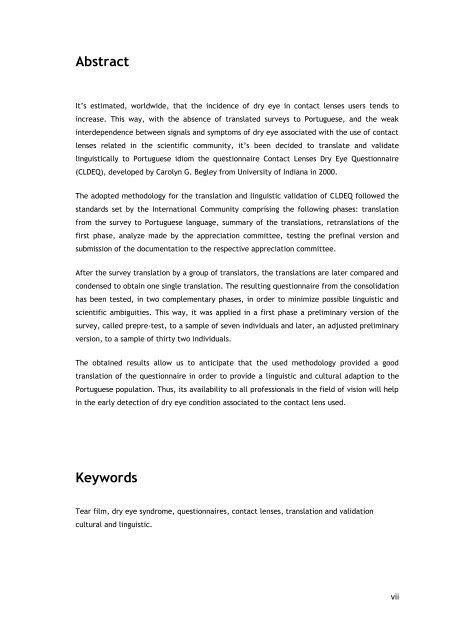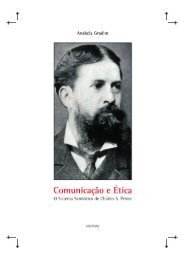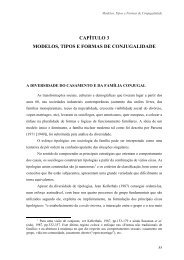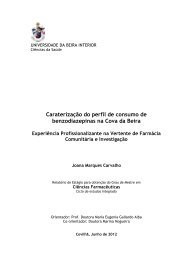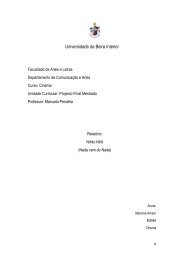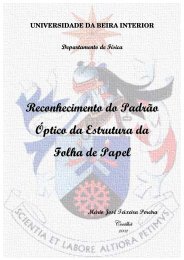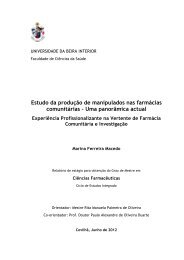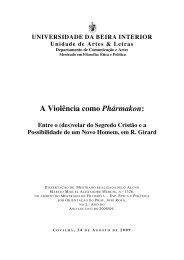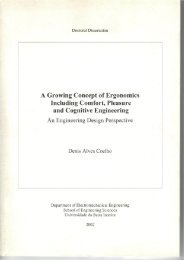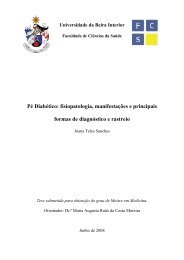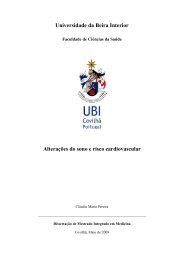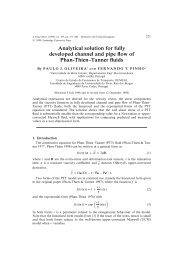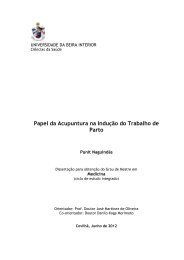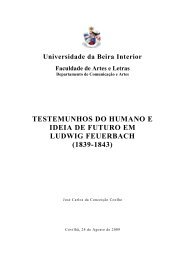âContact Lenses Dry Eye Questionnaireâ (CLDEQ) - Ubi Thesis
âContact Lenses Dry Eye Questionnaireâ (CLDEQ) - Ubi Thesis
âContact Lenses Dry Eye Questionnaireâ (CLDEQ) - Ubi Thesis
Create successful ePaper yourself
Turn your PDF publications into a flip-book with our unique Google optimized e-Paper software.
Abstract[1linha de intervalo]It’s estimated, worldwide, that the incidence of dry eye in contact lenses users tends toincrease. This way, with the absence of translated surveys to Portuguese, and the weakinterdependence between signals and symptoms of dry eye associated with the use of contactlenses related in the scientific community, it’s been decided to translate and validatelinguistically to Portuguese idiom the questionnaire Contact <strong>Lenses</strong> <strong>Dry</strong> <strong>Eye</strong> Questionnaire(<strong>CLDEQ</strong>), developed by Carolyn G. Begley from University of Indiana in 2000.The adopted methodology for the translation and linguistic validation of <strong>CLDEQ</strong> followed thestandards set by the International Community comprising the following phases: translationfrom the survey to Portuguese language, summary of the translations, retranslations of thefirst phase, analyze made by the appreciation committee, testing the prefinal version andsubmission of the documentation to the respective appreciation committee.After the survey translation by a group of translators, the translations are later compared andcondensed to obtain one single translation. The resulting questionnaire from the consolidationhas been tested, in two complementary phases, in order to minimize possible linguistic andscientific ambiguities. This way, it was applied in a first phase a preliminary version of thesurvey, called prepre-test, to a sample of seven individuals and later, an adjusted preliminaryversion, to a sample of thirty two individuals.The obtained results allow us to anticipate that the used methodology provided a goodtranslation of the questionnaire in order to provide a linguistic and cultural adaption to thePortuguese population. Thus, its availability to all professionals in the field of vision will helpin the early detection of dry eye condition associated to the contact lens used.]KeywordsTear film, dry eye syndrome, questionnaires, contact lenses, translation and validationcultural and linguistic.vii


